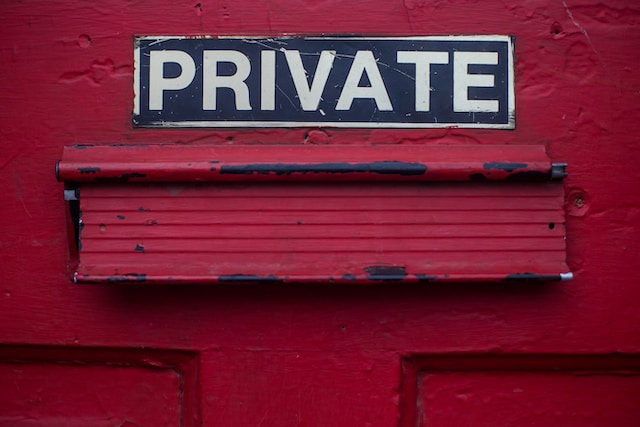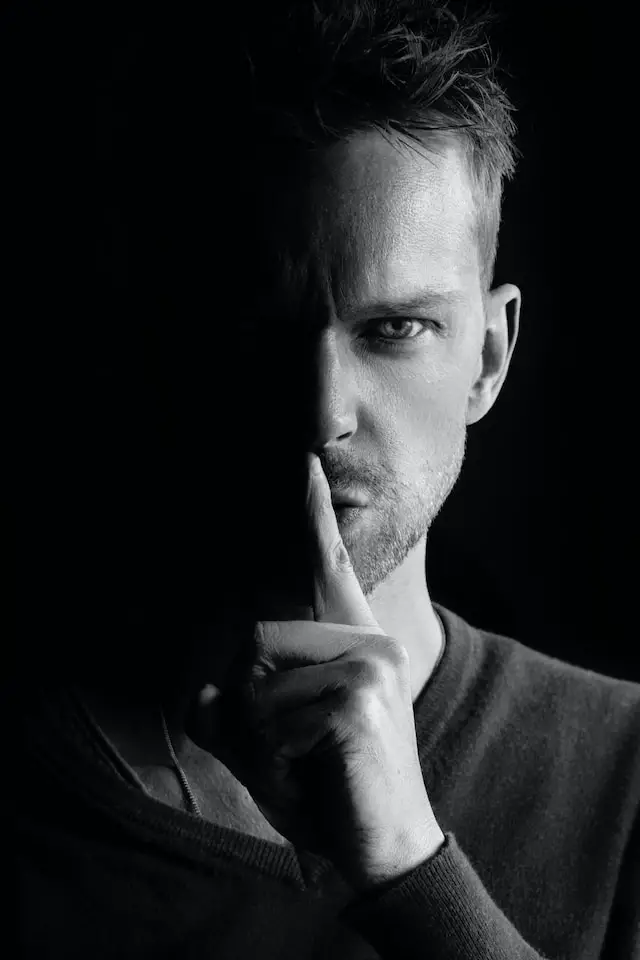Privacy can provide individuals with a sense of autonomy and protect them from unwanted scrutiny or judgement. Secrecy, on the other hand, can be useful for safeguarding sensitive information or maintaining confidentiality.
What is privacy?
(Photo by Dayne Topkin on Unsplash )

Privacy is the ability to control when and how much information about yourself you share with others. It’s a fundamental human right that allows us to maintain autonomy, dignity, and personal freedom. When we have privacy, we can choose who we share our thoughts, feelings, and experiences with – whether that be friends, family members or strangers.
At its core, privacy is all about boundaries. People set these boundaries in different ways depending on their comfort level and cultural norms. Some people are more private than others; they may not feel comfortable sharing personal details about themselves until they get to know someone better.
In today’s digital age where our lives are increasingly played out on social media platforms like Facebook and Instagram it’s harder than ever before to keep your private life truly private. Understanding what Privacy means gives you the power of knowing when too much has been revealed and helps you make better decisions by setting clear limits for yourself
What is secrecy?
(Photo by Sander Sammy on Unsplash )

Secrecy is the act of keeping certain information or knowledge hidden from others. It implies that there are things we choose not to share with anyone else, either because they are personal or because they may have negative consequences if they were revealed.
Secrecy can be seen as a form of protection, especially when it comes to sensitive information that might put us or someone else in danger if exposed. For instance, whistleblowers sometimes need to keep their identities secret in order to avoid retaliation by those who would rather keep their wrongdoing under wraps.
In some cases, secrecy can also be associated with deception and manipulation. People sometimes hide things from others in order to gain an advantage over them or control the situation. This kind of secrecy is often motivated by fear and mistrust.
At times, secrecy can create rifts between people when one person feels left out due to being excluded from knowing what’s going on around them. However, there are other times where privacy and confidentiality must be respected for everyone’s benefit.
While both privacy and secrecy involve limiting access to certain information; the key difference lies in the intention behind each practice- protecting oneself vs controlling others through deceitful actions
Privacy Vs. Secrecy – Key differences
Privacy and secrecy are two distinct concepts that are often used interchangeably, but they have stark differences. Privacy is the right to keep personal information away from public scrutiny and maintain one’s autonomy. It pertains to an individual’s ability to control what information about them is collected, shared or stored. On the other hand, secrecy involves intentionally hiding something from others for various reasons.
The key difference between privacy and secrecy lies in their intent. Privacy concerns personal boundaries while keeping things open, transparent and accessible as much as possible. Conversely, secrecy implies a hidden agenda where individuals conceal information for fear of repercussions or judgment.
Moreover, privacy focuses on respecting people’s autonomy while providing adequate protection against unauthorized access or misuse of sensitive data. Secrecy aims at protecting oneself by controlling who has access to vital information.
Understanding the distinction between these two concepts can help us navigate our interactions with others better by balancing transparency with confidentiality appropriately.
The benefits of privacy
Privacy is essential as it provides individuals with the freedom to control their personal information and how it’s used. It allows them to keep certain aspects of their lives hidden from public view, which can be critical in maintaining a sense of autonomy.
One benefit of privacy is that it allows people to maintain boundaries and choose who they want to share information with. By keeping some things private, they can avoid unwanted attention or interference from others. This can also help protect against identity theft or fraud.
Another advantage of privacy is that it fosters trust between individuals and institutions such as businesses and governments. When people feel that their information is being protected, they are more likely to engage in transactions or interactions without fear of negative consequences.
Moreover, privacy has been linked to psychological well-being, reducing stress levels by providing a sense of security and comfort knowing that personal details are not readily available for scrutiny by others.
The benefits of privacy cannot be overstated. It enables individuals to have greater control over their lives while fostering trust among society’s actors.
The benefits of secrecy
Secrecy is the practice of keeping certain information hidden or confidential, away from public knowledge. It may have negative connotations but it also has its benefits in various situations.
One of the main benefits of secrecy is maintaining confidentiality. In certain professions such as medicine and law, professionals are bound by ethical codes to keep their clients’ information confidential. This allows individuals to seek help without fear of judgment or exposure.
Secrecy can also help maintain a competitive advantage in business. Companies often keep their plans and strategies secret from competitors to stay ahead in the market. This helps them protect their intellectual property and avoid copycats who aim to replicate success.
In personal relationships, secrecy can be beneficial for protecting privacy and avoiding unnecessary conflicts. Some people prefer not to share everything with others, which is completely understandable and acceptable as long as it doesn’t harm anyone else.
Some secrets are kept for safety reasons like national security or personal safety concerns. Governments may need to keep classified information under wraps for security reasons while individuals may need to hide sensitive data about themselves from potential attackers.
While secrecy should never be used maliciously or deceitfully, there are some instances where it can provide protection and advantages when used responsibly within moral limits.
When to keep things private and when to keep them secret
When it comes to deciding whether to keep something private or secret, there are a few factors to consider. The nature of the information is important. If it’s sensitive in any way – for example, personal medical information or financial details – then privacy may be necessary.
Another factor is who needs to know. Generally speaking, if the information affects others in some way (positively or negatively), they should be informed. However, if it doesn’t affect anyone else and you don’t feel comfortable sharing it with anyone outside your immediate circle, then keeping it private might be appropriate.
It’s also worth thinking about why you want to keep something private/secret. Are you doing so out of fear or shame? Or is there a legitimate reason for not wanting others to know? If the former is true, consider whether being more open would actually alleviate those feelings.
Each situation will require its own assessment. But as a general rule of thumb: prioritize privacy when protecting yourself and others from harm; reserve secrecy for times when revealing information could have serious consequences (e.g., national security issues).
Featured Image By – Jason Dent on Unsplash








